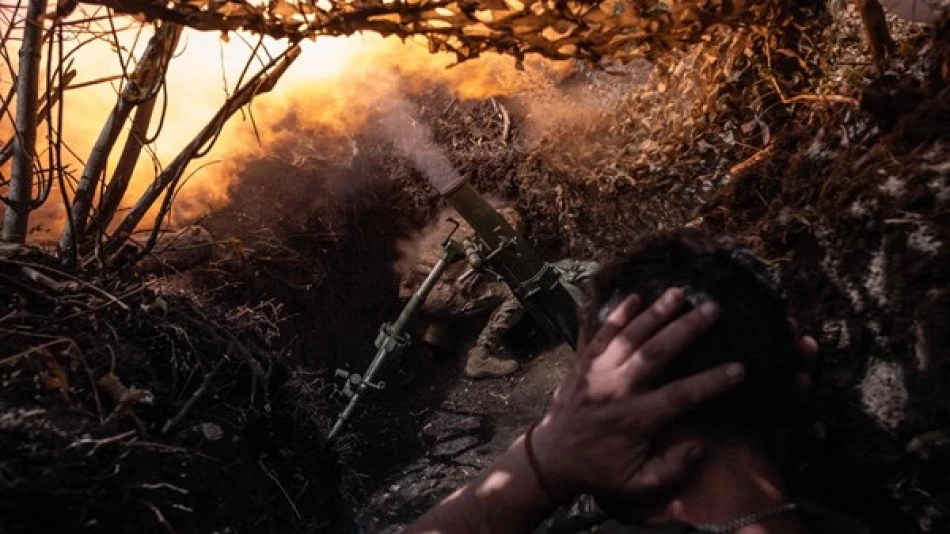
Russian Army Unveils Combat Frontline Data: Insights from the Battlefield
Russia Claims Strategic Initiative as Military Advances Accelerate Across Ukrainian Frontlines
Russian forces have seized strategic momentum across nearly the entire Ukrainian front, according to top military leadership, with Moscow claiming control over vast swaths of eastern and southern Ukraine. The assertions, if accurate, signal a potential turning point in the conflict as Russia consolidates territorial gains while systematically targeting Ukraine's military infrastructure.
Territorial Control Reaches Critical Mass
General Valery Gerasimov, Russia's Chief of General Staff, announced Saturday that Russian forces now maintain "complete strategic initiative" while conducting "relentless attacks along almost the entire front line." The military leadership's confidence reflects substantial territorial acquisitions across Ukraine's industrial heartland.
According to Gerasimov's briefing to senior commanders, Russian forces control 99.7% of Luhansk region, 79% of Donetsk, 74% of Zaporizhzhia, and 76% of Kherson. These figures, while unverified by independent sources, suggest Moscow has achieved significant objectives in Ukraine's resource-rich eastern territories.
Accelerating Pace of Conquest
Russian forces have captured over 3,500 square kilometers of Ukrainian territory since March, including 149 villages, according to official Moscow statements. This acceleration indicates either weakening Ukrainian defensive capabilities or successful adaptation of Russian military tactics following early war setbacks.
The latest territorial gain includes the village of Komyshovakha in Donetsk region, adding to Russia's systematic advance through Ukraine's Donbas industrial corridor.
Strategic Infrastructure Under Systematic Attack
Beyond territorial conquest, Russia appears focused on degrading Ukraine's military capacity through precision strikes on critical infrastructure. The Defense Ministry reported successful attacks on Ukrainian missile and aviation facilities, along with military airfields across the country.
This dual approach—territorial expansion combined with infrastructure degradation—mirrors successful military campaigns where occupying forces seek to eliminate enemy capabilities while consolidating control over captured areas.
Implications for Conflict Trajectory
Russia's claimed strategic initiative, if sustained, could fundamentally alter the war's dynamics. Control over eastern Ukraine's industrial base provides significant economic leverage, while infrastructure attacks limit Ukraine's ability to project power or receive external military support effectively.
The timing of these announcements coincides with international discussions about long-term military aid to Ukraine, suggesting Moscow may be positioning for potential negotiations from a strengthened territorial position.
Regional Stability Concerns
Russian control over Zaporizhzhia region, home to Europe's largest nuclear power plant, raises ongoing concerns about energy security and nuclear safety. Meanwhile, Kherson's strategic position controlling access to Crimea solidifies Russia's land bridge to the annexed peninsula.
These territorial gains, combined with systematic infrastructure attacks, indicate Russia's strategy has evolved from rapid conquest attempts to methodical consolidation of strategically valuable regions.
Most Viewed News

 Layla Al Mansoori
Layla Al Mansoori






